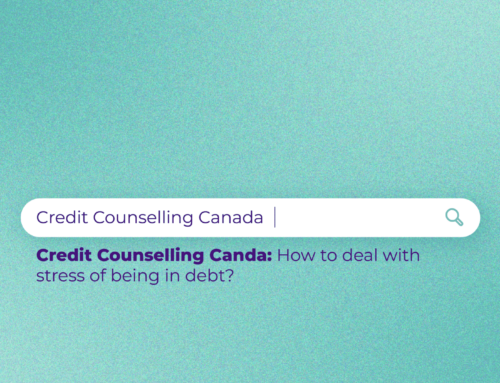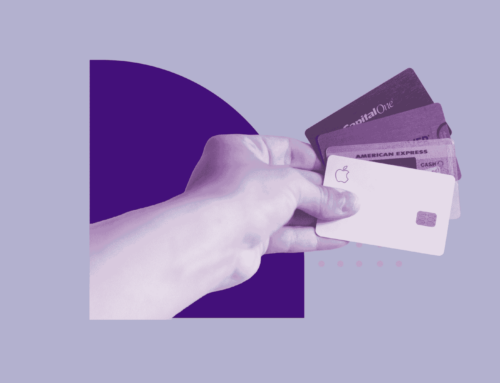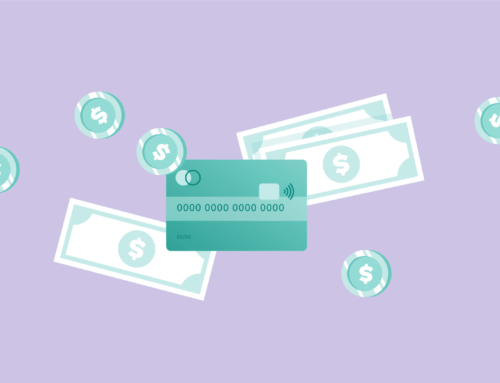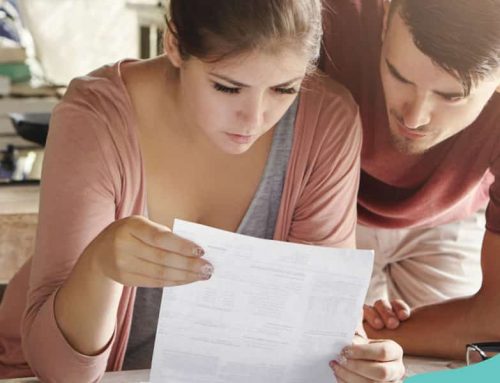It’s Financial Literacy Month – and 2020 marks the celebration of the 10th anniversary of this initiative. This year hasn’t been the easiest for Canadians and many people across the globe. The COVID-19 pandemic hit in March, which resulted in a huge economic downturn. As a result, many businesses shut down, and jobs were lost. Also, the pandemic has caused financial stress, debt and money problems. Meanwhile, Canadians are trying to get back on their feet and figure out how to get out of debt or avoid it completely.
According to Statistics Canada, almost three million jobs were lost in March & April. Likewise, only two million of these jobs had been replaced as of August 2020. Above all, this has left Canadians worried about their finances. Whether you’re worried about falling into a bad debt cycle or currently trying to figure out how to get out of debt, there are certain steps you can take to help lighten the load. Check out these eight steps you can take to help you begin reducing your debt amount.
Assess Your Current Financial Situation
It’s important to take a step back and look at your debt in an unbiased way. To begin seeing how you can get out of debt, you must figure out what bills and the debt you have to pay. To do this, you can gather your most recent bill statements for all credit cards, loans and student loans. This will help provide you with the full picture of how much money you actually owe.
When assessing your financial situation, it’s also important to check your credit report. This way, you will be able to identify all recorded debts on your credit file effectively. Likewise, it’s important to check your credit score. This will help you get an idea of whether you’re eligible for a lower interest rate or a debt consolidation loan.
Create A New Budget
Throw out your old budget and start a new one! When you’re trying to change your spending habits and reduce your debt, create a new budget with a different mind frame. Firstly, please take note of all your income, whether it’s your salary or benefits. Likewise, you should write down a list of all payments you need to make each month. Then, you can figure out exactly how much money you MUST spend on bills.
We all tend to have some expenses that aren’t always essentials – these are important to revise when trying to reduce debt. For example, you can always cut back on daily coffees, reduce your dining out budget to once or twice a month, or even cut back on shopping. To learn more about starting your own budget, check out our Maestro course here.
Track Your Spending
Once you’ve implemented your new budget, you’ve started your journey to a debt-free life. But how do you stay motivated and make sure you’re staying on budget? To stay on course, it’s important to track your spending.
This can mean inputting your daily or weekly spending’s into a phone app or even jotting them down on paper as you go. For most people, it’s easier to track your spending daily to ensure accuracy. Above all, tracking your spending will help remind you to spend consciously. As a result, this will allow you to recognize bad spending habits while ensuring you’re on track to paying off your debt.
If you’re interested in diving deeper into your spending habits and trends, check out MyMarble today. You can get started online here.
Talk To An Expert
There’s no shame in asking for advice from a professional when you’re looking to get out of debt. If you feel that bankruptcy may be your next option, start by speaking to a Credit Counsellor. Firstly, you can find out what programs are available to help you deal with your debts. A reputable Credit Counsellor will explain all of your options and let you choose the option that makes the most sense for you in your situation.
Pay More Than Just The Minimum Payment On Your Debt
There are no rules that say you should only pay the monthly minimum payment on your credit card or loan. If possible, you can pay more. Remember, if you pay your mortgage off early, make sure there’s no prepayment penalty. And when it comes to your loans, make sure you confirm with your lender that your extra payments go to the principal and not the interest rate.
Consider Picking Up A Side Hustle
It’s always a nice thought to consider picking up a side hustle or a second job to help pay off those bills to get out of debt. But it doesn’t have to be something that requires a huge commitment or a lot of your time. Why not consider walking dogs, participating in online surveys or even babysitting? An extra $50 a week can really help you pay down your debt faster.
Ask For Lower Interest Rates On Your Credit Cards & Negotiate Your Bills
If your credit card interest rates are so high, it feels almost impossible to make headway on your balances; it’s worth calling your card issuer to negotiate. Believe it or not, asking for lower interest rates is actually quite common. And luckily, if you have a solid history of paying your bills on time, there’s a good possibility of getting a lower interest rate. Contact your credit card issuer or lenders to arrange a meeting to see what you can do to lower your interest rates.
When it comes to utility bills or subscriptions, you can always revise what you’re paying first to address whether it’s something you should keep or scrap. You can then see if there are other more favourable payment options or cheaper alternatives to help you save some extra money with the ones you have left.
Try A Balance Transfer
If you’ve contacted your credit card companies, and are having no luck negotiating your interest rates, try a balance transfer. Some balance transfer offers will allow you to secure 0& intro APR for up to 18 months. Otherwise, you may save money on interest by transferring the balance to a card.
Invest Some Time Into Your Financial Education
Paying off your last debt payment is the best feeling in the world. But how do you make sure that you don’t fall into the same bad habits again? Investing some time into learning all about your finances can be extremely beneficial, regardless of your current situation.
If you’re looking to brush up on your financial knowledge, sign up for our Maestro courses today. Maestro provides you with free financial literacy courses on debt, credit and budgeting to help you elevate your finances. Enroll today: https://learn.mymarble.ca/
The Bottom Line
Getting out of debt may seem like a distant dream – but learning how to budget, tracking your spending and learning about your options can help kick-start your journey. Everyone’s financial situation is unique, and if you feel your debt beginning to take control of your life, it’s vital to talk to a professional to help guide you in the right direction.






